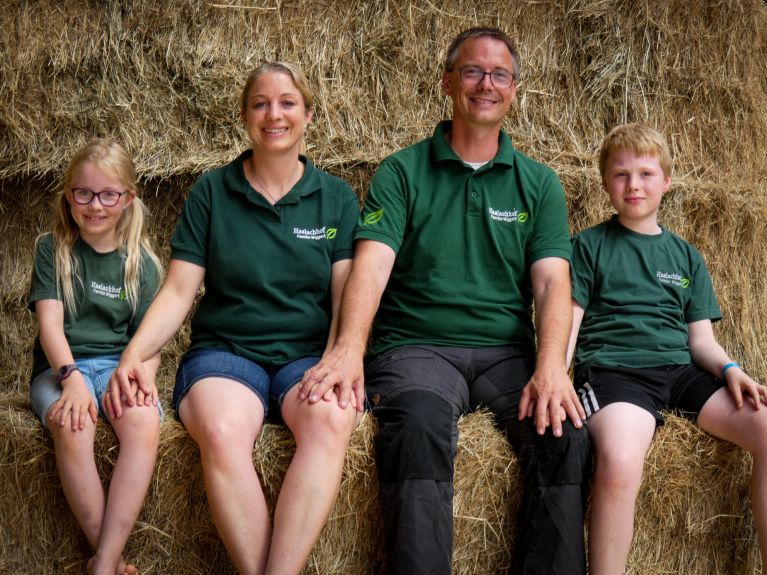“We focus on natural cycles”
Wolfram Wiggert and his family farm in the Upper Black Forest: innovative, sustainable and climate-sensitive.

Mr Wiggert, in 2024 your farm Haslachhof was among the winners of the national organic farming competition. What makes your farm particularly ecofriendly?
One crucial point is that we treat our soil very sustainably. We work the soil only to a minimal extent and rely on a very varied crop rotation that is repeated every nine years. For three years, we grow alfalfa and clover grass mixtures with flowering plants and herbs in our fields, supplying the soil with plenty of nitrogen. This makes it fit for subsequent crops such as spelt, einkorn, rye and barley. Clover and alfalfa form a symbiotic relationship with bacteria that makes nitrogen from the air available to plants. So you might say they fertilise themselves, along with the plants growing around them. We rely on the natural cycles of nature – ultimately achieving efficiency, too.

Talking of efficiency: your farm also shows how it’s possible to harmonise ecology and economy. What is the key to your commercial success?
Our input-output ratio is good. We have a herd of around 90 cows of the rare local Hinterwälder breed and we feed them exclusively with grass and forage from our own farmland. I already mentioned how clover grass makes our soil more fertile. In addition, we can use the clover grass to operate our own biogas plant. This produces organic fertiliser which we use to grow cereals, for example. Thanks to the high quality of our soil and our in-house organic fertilisation, we’ve been able to increase grain yield by up to 80 percent in recent years.
Climate change is also a particular concern in agriculture. How do you adapt to it?
In recent years we’ve successfully experimented with crops that are able to cope with low rainfall such as buckwheat and millet. Millet only needs about a third of the amount of water required by oats. Meanwhile, oats are currently benefiting from the high level of rainfall. This bears out our strategy of focussing on ecological diversity. And we’re climate-sensitive when it comes to energy generation, too: our biogas plant supplies over 4,000 people in the region with electricity, while 100 percent of our waste heat is fed into the heating network of the town of Löffingen.


